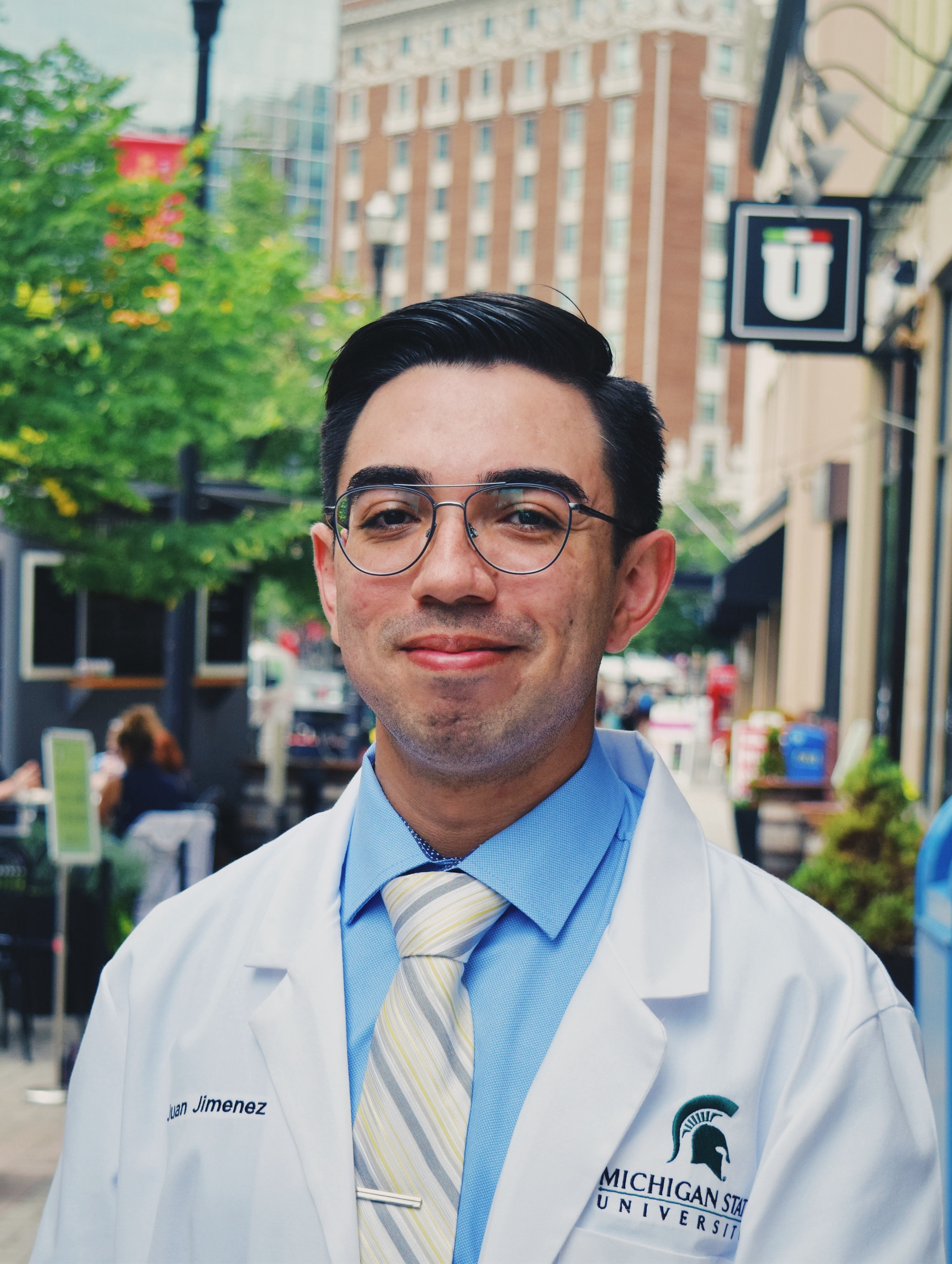Juan Jimenez is a third-year student at Michigan State University College of Human Medicine. As part of the Leadership in Medicine for the Underserved program, he recently completed an elective at Wellness Services in Flint,where he spent time learning about specialty HIV care and syringe service programs, and assisted staff in creating and distributing harm reduction kits for clients.
As cars and bicycles pull up in the shared parking lot of an unassuming building, Yashica Ellis and her staff get ready to help their clients stay safe. A gentleman in a long, old coat, a woman with missing teeth each receive a bag of items that can keep them alive, though at first glance many people would think otherwise. This is not a shelter for folks experiencing homelessness, a free clinic for the uninsured nor is it a food bank for those with little to nothing in their refrigerator (if they even have access to one). This is Wellness AIDS Services, a community organization where individuals and couples can come for HIV testing and counseling. It is also a place where many clients come to pick up a bag of needles, testing strips, snorting kits, bubble pipes, Narcan kits and condoms as part of its STEP program. A safe, humanizing space for those with substance use disorder, one that at times feels like a covert mission. It shouldn’t have to be that way, however. Today is the day we start looking at our community members as people in need of help, and while providing clean needles may not be the exact answer to tackling addiction, it certainly is a promising start.
Syringe service programs like the Syringe Treatment Exchange Program at Wellness operate under the premise of harm reduction – that is, a public health strategy that minimizes the harm associated with drug use while simultaneously maintaining all peoples’ rights to dignity and safety. People who use heroin are still people, and they deserve to use it in a safe manner if they so choose just as people with HIV are still people worthy of care and dignity. The impacts of substance use extend beyond the individual, as we know that diseases like Hepatitis C and HIV are spread via contaminated needles and unprotected sex. Thus, the work of organizations like Wellness Services is critical to ensuring public health.
According to the Michigan Department of Health and Human Services, SSPs can help reduce overdose rates, reduce the prevalence of HIV and Hepatitis C by up to 50% in both, and increase proper disposal of syringes and access to substance use treatment programs. Like Wellness Services, many of these programs include HIV and Hepatitis C testing, connect individuals to medical care, provide wound care, and offer social support and case management services. Their work in catching folks who have fallen through cracks opened by societal stigma, socioeconomic factors, and limited public resources often takes a backseat when politicians and the media hyperfocus on the needles and boofing kits they provide, claiming that doing so further encourages addiction. On the contrary, our longstanding and predominant societal view of addiction as a crime and personal moral failure rather than a biopsychological issue and public health concern only adds fuel to the fire.
In order to help put out that fire, we need to start thinking about policy at the local and state level. Earlier in the day, Yashica had given a brief history of Wellness Services and the legality of SSPs across the state. Oftentimes a big hurdle in the establishment and success of a program concerns local and state ordinances that govern delivery and possession of syringes. Though a local ordinance allows Wellness Services to operate in Flint, possession of syringes is not protected outside of its city borders. Thus, an individual who is detained by police in neighboring Flint Township or Flushing can have their items confiscated if there are no protective local ordinances in those towns. People can do their part by advocating at both local city halls and the state capital for laws that protect individuals and allow for easier establishment of SSPs. Additionally, advocating for increased funding for and promotion of these programs, expanding Narcan access, and ultimately starting a discussion about safe injection sites can help shift the paradigm for tackling substance use.
We can no longer continue to push our most vulnerable neighbors into the shadows of shame and neglect. Addiction is not won by denial and castigation, but rather via collective responsibility and empathy. SSPs are the starting point for so many, and we must therefore promote and invest in these life saving programs heavily.
